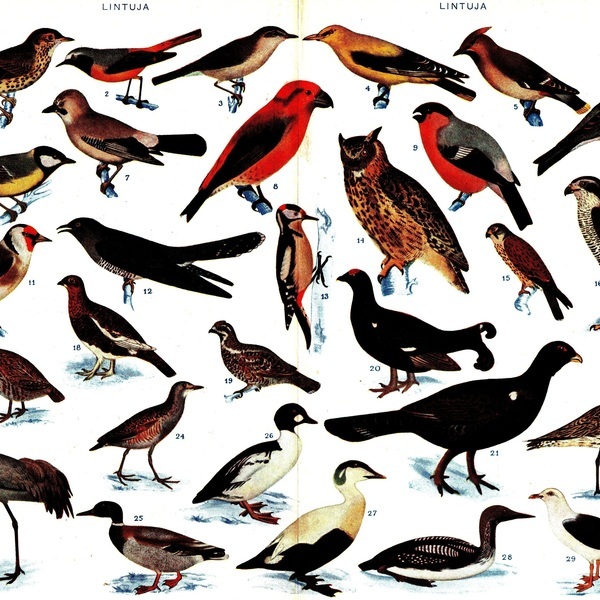- ImageCLEF 2024
- LifeCLEF 2024
- ImageCLEF 2023
- LifeCLEF 2023
- ImageCLEF 2022
- LifeCLEF2022
- ImageCLEF 2021
- LifeCLEF 2021
- ImageCLEF 2020
- LifeCLEF 2020
- ImageCLEF 2019
- LifeCLEF 2019
- ImageCLEF 2018
- LifeCLEF 2018
- ImageCLEF 2017
- LifeCLEF2017
- ImageCLEF 2016
- LifeCLEF 2016
- ImageCLEF 2015
- LifeCLEF 2015
- ImageCLEF 2014
- LifeCLEF 2014
- ImageCLEF 2013
- ImageCLEF 2012
- ImageCLEF 2011
- ImageCLEF 2010
- ImageCLEF 2009
- ImageCLEF 2008
- ImageCLEF 2007
- ImageCLEF 2006
- ImageCLEF 2005
- ImageCLEF 2004
- ImageCLEF 2003
- Publications
- Old resources
You are here
BirdCLEF 2021 - Main task

Motivation
There are already many projects underway to extensively monitor birds by continuously recording natural soundscapes over long periods. However, as many living and nonliving things make noise, the analysis of these datasets is often done manually by domain experts. These analyses are painstakingly slow, and results are often incomplete. Data science may be able to assist, so researchers have turned to large crowdsourced databases of focal recordings of birds to train AI models. Unfortunately, there is a domain mismatch between the training data (short recording of individual birds) and the soundscape recordings (long recordings with often multiple species calling at the same time) used in monitoring applications. This is one of the reasons why the performance of the currently used AI models has been subpar.
To unlock the full potential of these extensive and information-rich sound archives, researchers need good machine listeners to reliably extract as much information as possible to aid data-driven conservation.
Data collection
The training set used for the challenge will contain approximately 60K recordings covering 397 species from North, Central and South America. Training recordings were collected by citizen scientists for the Xeno-canto network. The test set will contain soundscape recordings from four different recording locations: Eastern and Western United States, Costa Rica, and Colombia. Each recording is accompanied by metadata revealing the recording location which will help participants to evaluate location-dependent models. The validation data includes example soundscape recordings for two of the four recording sites.
Task description
Participants will have to train a classifier using short recordings of individual birds. For testing, the classifier will be applied to continuous soundscape recordings of varying complexity. Participants are asked to bridge the gap in acoustic domains between training and test recordings by crating models that generalize well across acoustic domains. Finally, a list of audible species for each five-second segment of soundscape data has to be retrieved.
How to participate ?
BirdCLEF 2021 will be held on Kaggle.
Click here to participate: BirdCLEF 2021 Competition Website
Prizes
The best scoring submissions will be awarded a cash prize:
1st Place - $2,500
2nd Place - $1,500
3rd Place - $1,000
We will also award the best working note:
Participants of this competition are encouraged to submit working notes to the BirdCLEF 2021 conference. As part of the conference, a best BirdCLEF working note competition will be held. The winner of the best working note award will be granted GCP cloud credit funds of $5,000.
